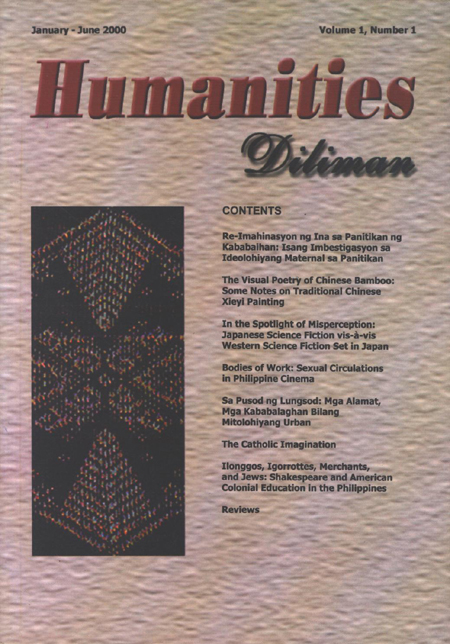Re-imahinasyon ng Ina sa Panitikan ng Kababaihan: Isang Imbestigasyon sa Ideolohiyang Maternal sa Panitikan
Abstract
The narratives generated by my earlier study of 20 women writers from three generations were a rich source of data and insights on many issues on gender and writing, such as motherhood and its representation in literature. It is their ideas on motherhood, which led me to ask how some of them represent motherhood in their works and what these representations say about their positions on the dominant maternal ideology in Philippine culture.Another impetus came from Delia Aguilar's study on Filipino housewives and the politics of gender. This study reveals that " . . . in the private space of the family as the major mechanism for the reproduction of social relations, women are at once validated and oppressed, a process that is powerfully mediated by the maternal ideology of which women are the foremost proponents." This maternal ideology shapes Filipino women's idea of motherhood that sees devotion to children, self-sacrifice, and care giving as the essence of motherhood, allowing them to embrace oppression and subordination. In this context, the interrogation of maternal ideology in Philippine literature is important to the overall feminist movement. Women writers who have freed themselves from the mystifying notions of motherhood may have been inspired to represent women in their works differently.
This paper clearly validates such assumption. Writers like Liwayway Arceo, Genoveva Edroza-Matute, Fanny Garcia, Lualhati Bautista, Lilia Quindoza-Santiago, and Luna Sicat-Cleto, as this reading of some of their works reveals, challenge the dominant maternal ideology by re-imagining motherhood. Without wholly rejecting the traditional notion of motherhood (with the exception of Luna Sicat-Cleto who questions the so called "essence" of motherhood), these writers interrogate the idealization of motherhood, question some of the fundamental assumptions of the dominant maternal ideology and represent women as mothers who are nurturing and caring just like the typical image of a Filipino mother, but who are not happy with confinement in the private domestic space. This radical representation of motherhood is, therefore, a welcome development in the present development of feminist discourse in the Philippines.


